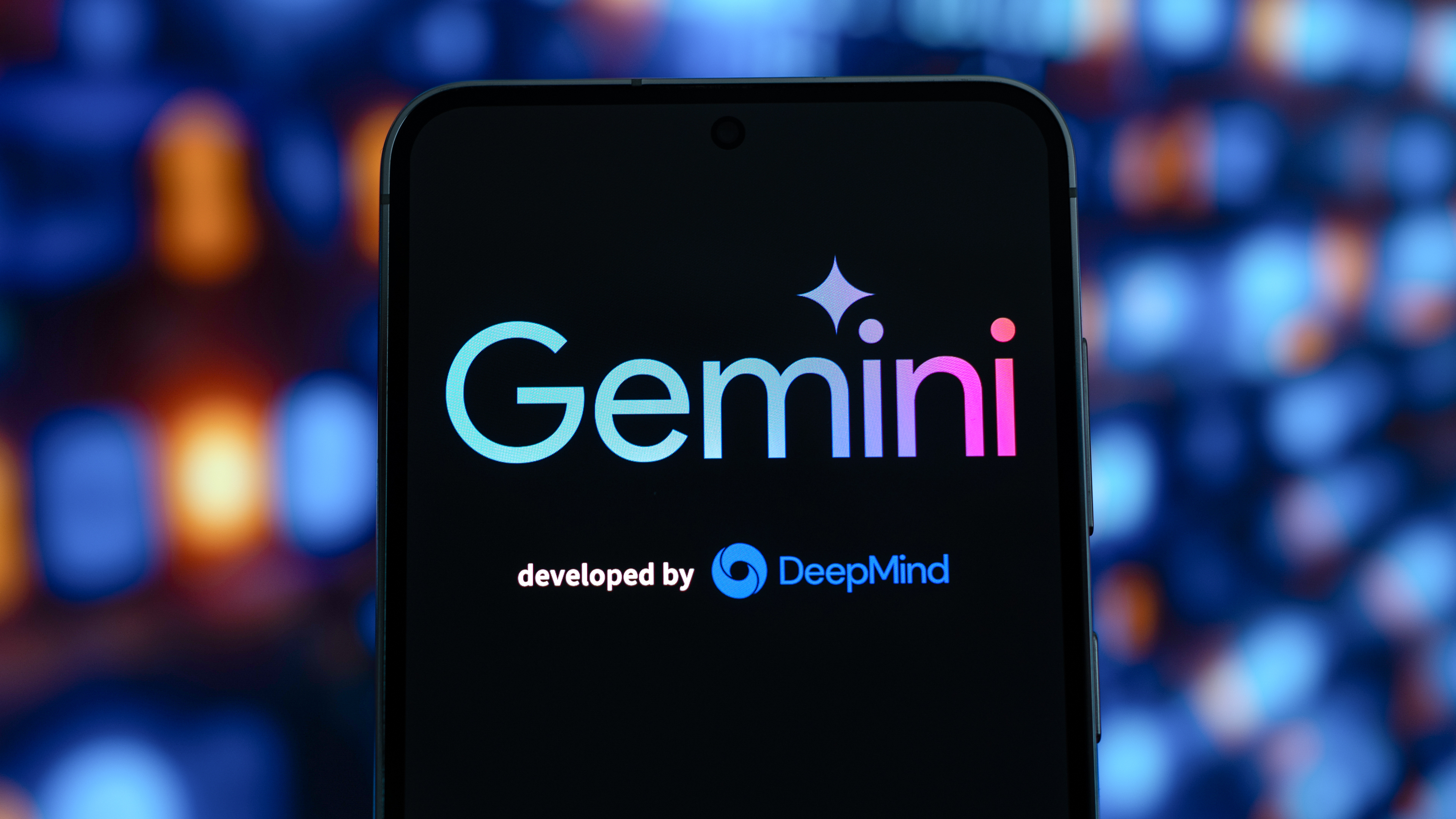Google Unveils New Android Q Features: Live Captions, Dark Theme and More
Google gave us another look at Android Q, outlining features that will appear in the new version of the mobile OS later this year. Here's what you can expect from Android Q.
Here at Tom’s Guide our expert editors are committed to bringing you the best news, reviews and guides to help you stay informed and ahead of the curve!
You are now subscribed
Your newsletter sign-up was successful
Want to add more newsletters?

Daily (Mon-Sun)
Tom's Guide Daily
Sign up to get the latest updates on all of your favorite content! From cutting-edge tech news and the hottest streaming buzz to unbeatable deals on the best products and in-depth reviews, we’ve got you covered.

Weekly on Thursday
Tom's AI Guide
Be AI savvy with your weekly newsletter summing up all the biggest AI news you need to know. Plus, analysis from our AI editor and tips on how to use the latest AI tools!

Weekly on Friday
Tom's iGuide
Unlock the vast world of Apple news straight to your inbox. With coverage on everything from exciting product launches to essential software updates, this is your go-to source for the latest updates on all the best Apple content.

Weekly on Monday
Tom's Streaming Guide
Our weekly newsletter is expertly crafted to immerse you in the world of streaming. Stay updated on the latest releases and our top recommendations across your favorite streaming platforms.
Join the club
Get full access to premium articles, exclusive features and a growing list of member rewards.
When it arrives later this year, Android Q will feature beefed-up privacy settings, new additions to the Digital Wellbeing feature introduced in last year's OS update, and an innovative feature that will add live closed-captioning to videos.
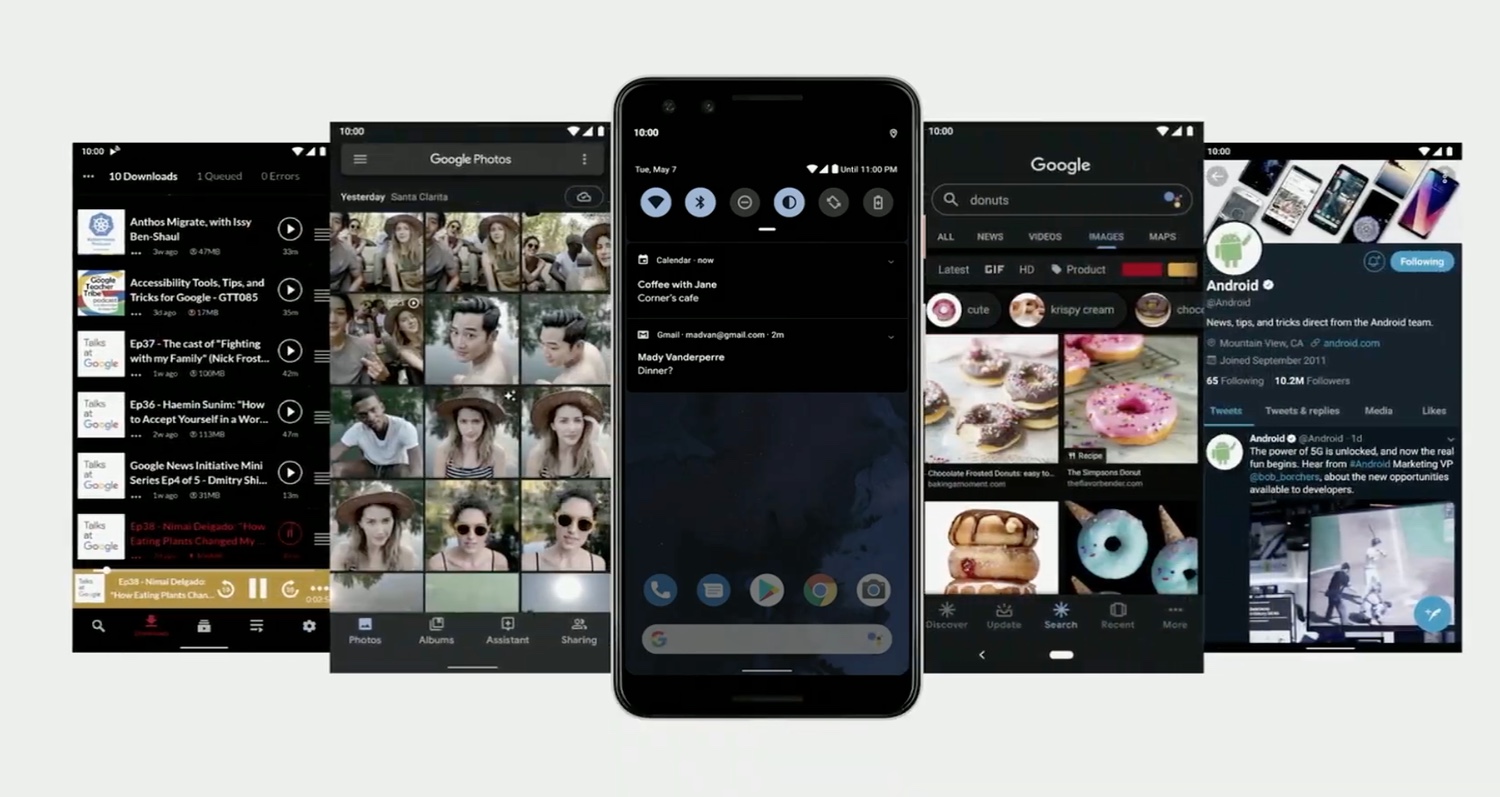
We already knew some of the features coming to Android Q, after Google released a developer beta of its upcoming mobile OS update back in March. But Google's annual I/O developer conference gives Google a public stage to talk about changes to Android, so we're getting a clearer picture of what new features and enhancements coming to our Android phones.
MORE: Here Are the 23 Phones That Support the Android Q Beta
Steph Cuthbertson, Google's director for Android, grouped the changes coming in Android Q to three categories — innovation, security and privacy and digital well-being.
Closed Captioning
Easily, the most innovative change coming in Android Q is a closed-captioning feature that will add real-time captions to videos in apps and on the web. All of the captioning heavy-lifting will be done on your device — in fact, Google demoed closed captioning on a device set to airplane mode.
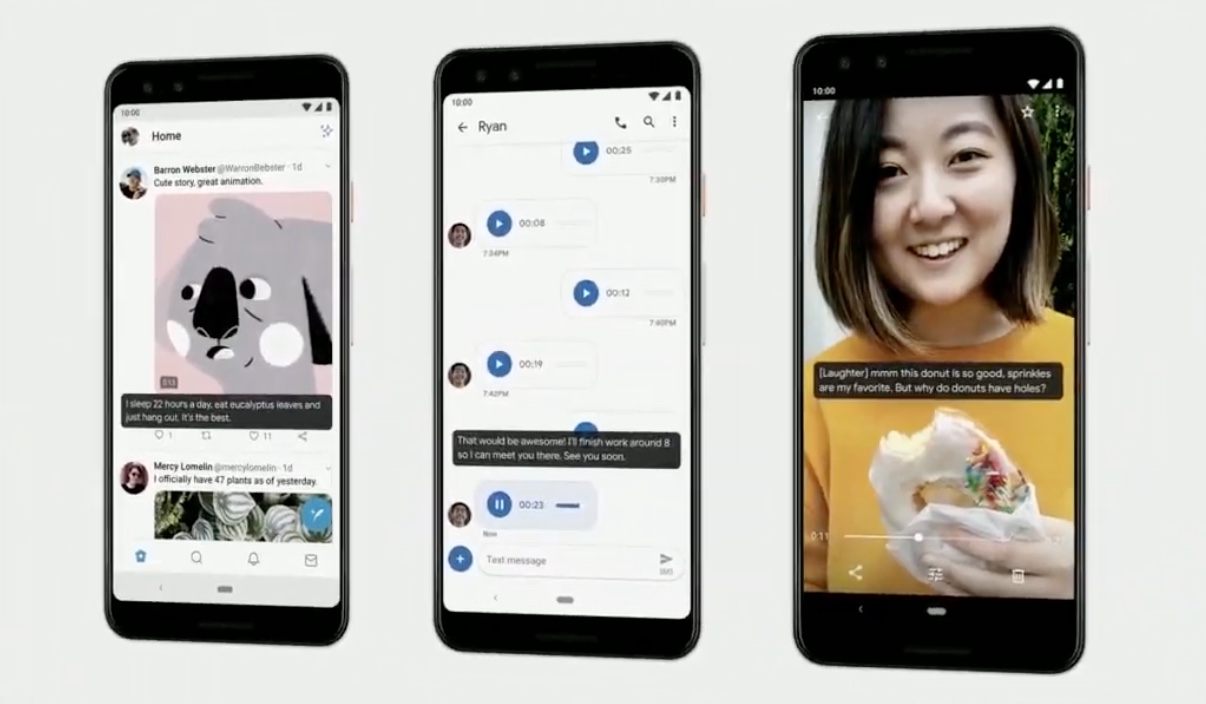
Cuthbertson said the feature is powered by a speech recognition breakthrough that Google made. It relies on a recurrent neural net that's 80MB instead of the 2GB setup that used to power real-time translation. That allows the feature to live on your phone, instead of tapping the cloud and taking more time.
Smart Reply
Get instant access to breaking news, the hottest reviews, great deals and helpful tips.
Another potential time-saver coming to Android Q is Smart Reply, which seems to draw heavily on the automated reply feature Google built into Gmail. In Android Q's implementation, Smart Reply will work with all Android messaging apps, letting you quickly send a reply with a tap.
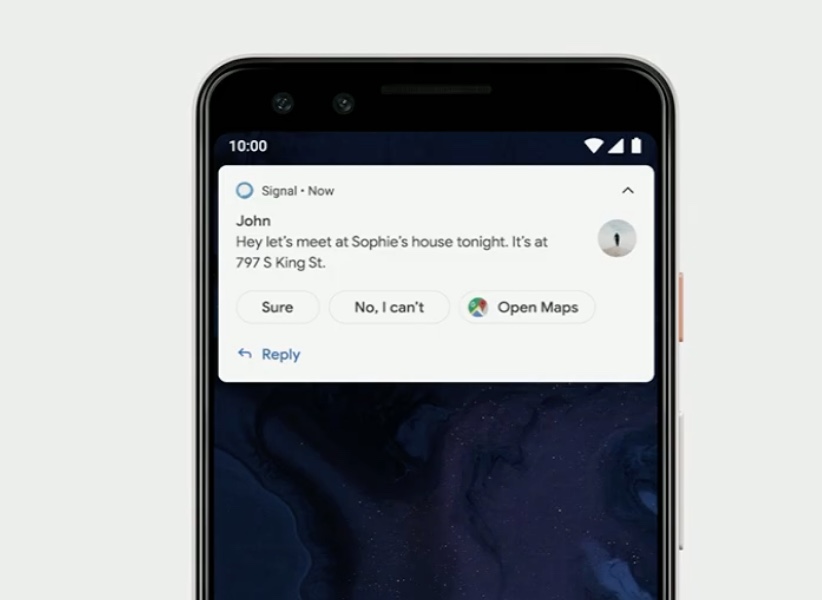
But Google is extending Android Q's Smart Reply to include actions as well. Say that when friends text you an address, you usually copy it and paste it into the Maps app on your phone. Smart Reply will recognize that behavior, and suggest it as an action you can take the next time you get texted an address, saving you some extra taps.
Dark Theme
As had long been rumored, Android Q is adding a Dark Theme that you'll be able to turn on via a quick settings tile. Dark Theme will also turn on automatically when you enable the battery-saving feature in Android Q, since one of the main benefits of switching to a dark mode is that your display consumes less power.
Foldable Phones and 5G
Cuthbertson talked up two big trends coming to smartphones this year — foldable displays and 5G connectivity. Android is being updated to work seamlessly with foldable phones, supporting features like multitasking, where you can run multiple apps on a larger display, and screen continuity, where apps resume running as you open and close the phone's screen. We've already seen these features in action with Samsung's Galaxy Fold, at least before Samsung postponed the launch of that device due to issues with its screen.
As for 5G, Cuthbertson didn't provide specifics on how Android Q will support this next-generation network standing that will deliver faster speeds and lower latency. But she did point out that the dozen 5G-ready phones expected this year will all be running Android.
Security and privacy
Android Q is promising 50 features that are focused on security and privacy, Cuthbertson said, starting with with a change to the mobile OS's settings. Privacy is now in the top level of the Settings screen, giving you quick access to location sharing, activity data and ad settings.
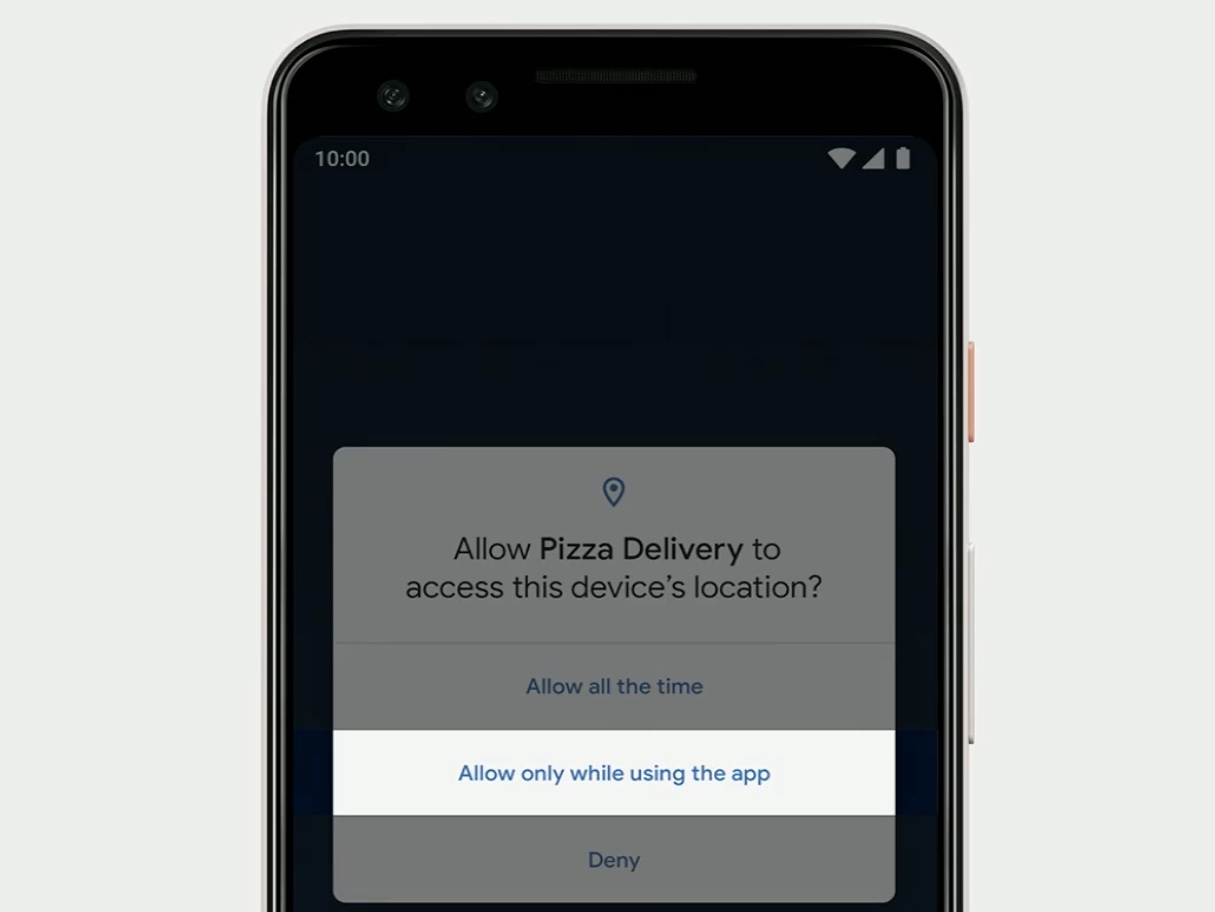
Speaking of location sharing, look for finer-grain controls on how and when you share your location. You can designate whether an app can access your location at all times or just when you're using the app, a feature Apple added in iOS 11. Android Q will also notify you when an app you're not actively using is trying to access your location, giving you a chance to manage that setting.
To quicken the pace of security updates — a long-standing complaint about Android — Android Q will enable direct over-the-air updates for security modules that will install without requiring you to reboot your phone. Think of it as similar to the way apps update in the background on the phone.
Digital Wellbeing: Focus Mode and Parental Controls
Digital Wellbeing was one of the centerpiece features added to Android in last year's Pie update, adding tools aimed at helping you manage screen time. Google considers it a success so far: Cuthbertson said that 90% of Digital Wellbeing users felt that app timers helped them stick to their goal, while the Wind Down feature caused a 27% drop in nighttime phone use.
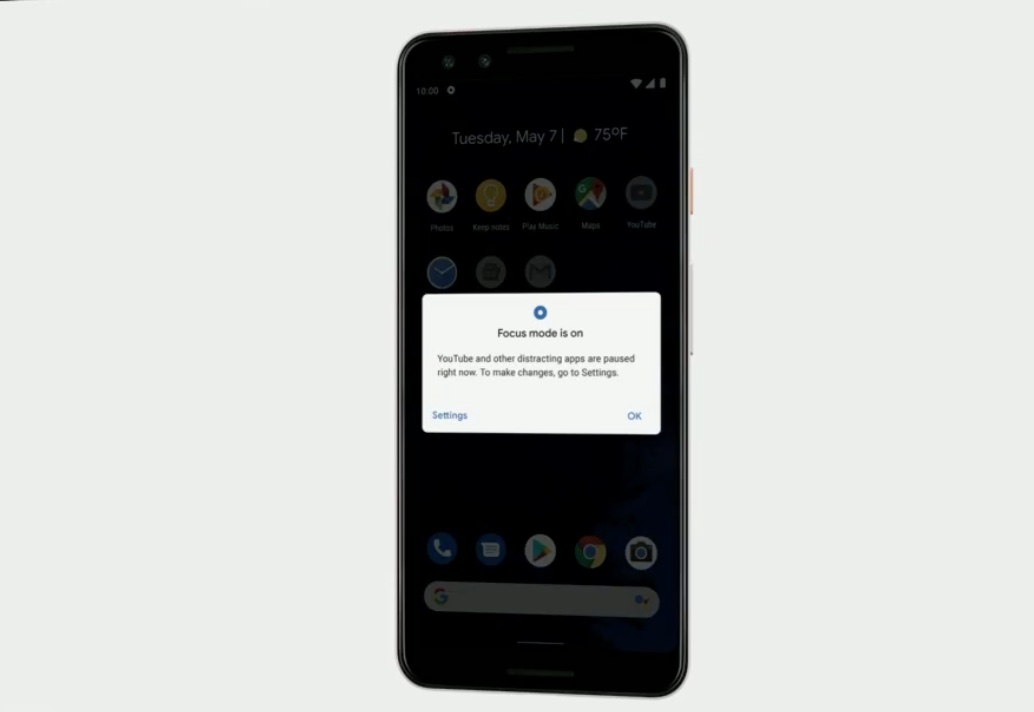
Android Q adds a Focus mode to Digital Wellbeing, in which you'll be able to designate certain apps as off limits when you need to buckle down and get work down. Enable Focus mode, and you'll be able to block out games, social networking apps, and anything else that might distract you. Focus mode is coming to Android 9 Pie devices, too, Cuthbertson said.
Google also plans to build parental controls right into the device settings in Android Q. Among the tools at parents' disposal will be the ability to set daily screen time limits including limits on specific apps, view the amount of time kids spend on each app and set device bedtimes. A bonus time feature lets you allow kids to have extra time, presumably if they ask nicely.
Getting the Android Q beta
Last year marked a first for Google, as it made the Android Pie beta available to devices outside of Google's own phones. That's continuing with Android Q, which will run on 23 devices from a dozen phone makers, including LG, Sony, OnePlus, Asus, Essential and Huawei.
To get the beta, go to Google's developer website and find the phone you wish to install it on. Click the link underneath that device and follow Google's instructions.
A word of caution, though: this is still a beta, and the target audience is still developers. We'd recommend against installing Android Q on the phone you rely on for everyday use, at least until later on in the beta process.
There's no official launch date for Android Q, but if Google follows its past behavior, you can expect the final version to be ready in late summer.
- Check out all the news Google announced at its developer conference on our Google I/O 2019 hub page.
Image Credits: Google
Philip Michaels is a Managing Editor at Tom's Guide. He's been covering personal technology since 1999 and was in the building when Steve Jobs showed off the iPhone for the first time. He's been evaluating smartphones since that first iPhone debuted in 2007, and he's been following phone carriers and smartphone plans since 2015. He has strong opinions about Apple, the Oakland Athletics, old movies and proper butchery techniques. Follow him at @PhilipMichaels.
 Club Benefits
Club Benefits






